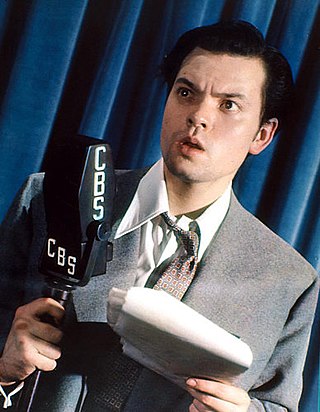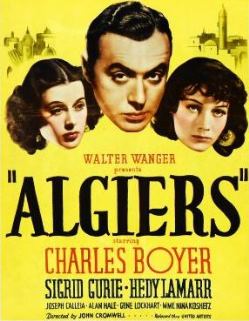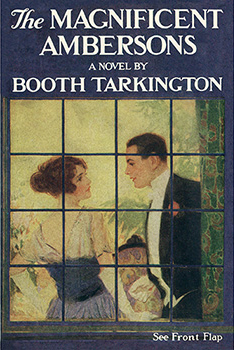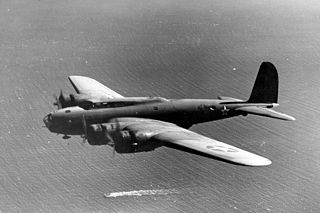
Joseph Cheshire Cotten Jr. was an American film, stage, radio and television actor. Cotten achieved prominence on Broadway, starring in the original stage productions of The Philadelphia Story and Sabrina Fair. He then gained worldwide fame in three Orson Welles films: Citizen Kane (1941), The Magnificent Ambersons (1942), and Journey into Fear (1943), for which Cotten was also credited with the screenplay.

George Orson Welles was an American actor, director, producer, and screenwriter who is remembered for his innovative work in film, radio, and theatre. He is considered to be among the greatest and most influential filmmakers of all time.

The Campbell Playhouse (1938–1940) is a live CBS radio drama series directed by and starring Orson Welles. Produced by Welles and John Houseman, it was a sponsored continuation of The Mercury Theatre on the Air. The series offered hour-long adaptations of classic plays and novels, as well as adaptations of popular motion pictures.

The Mercury Theatre was an independent repertory theatre company founded in New York City in 1937 by Orson Welles and producer John Houseman. The company produced theatrical presentations, radio programs and motion pictures. The Mercury also released promptbooks and phonographic recordings of four Shakespeare works for use in schools.

Algiers is a 1938 American drama film directed by John Cromwell and starring Charles Boyer, Sigrid Gurie, and Hedy Lamarr. Written by John Howard Lawson, the film is about a notorious French jewel thief hiding in the labyrinthine native quarter of Algiers known as the Casbah. Feeling imprisoned by his self-imposed exile, he is drawn out of hiding by a beautiful French tourist who reminds him of happier times in Paris. The Walter Wanger production was a remake of the successful 1937 French film Pépé le Moko, which derived its plot from the Henri La Barthe novel of the same name.

Ah, Wilderness! is a comedy by American playwright Eugene O'Neill that premiered on Broadway at the Guild Theatre on October 2, 1933. It differs from a typical O'Neill play in its happy ending for the central character, and depiction of a happy family in turn of the century America. It is O'Neill's only well-known comedy.

The Magnificent Ambersons is a 1918 novel by Booth Tarkington, the second in his Growth trilogy after The Turmoil (1915) and before The Midlander. It won the Pulitzer Prize for fiction and was adapted into the 1925 silent film Pampered Youth. In 1942 it was again made into a movie, written and directed by Orson Welles, though the released version was edited against Welles wishes. Much later, in 2002, came a TV adaptation based on Welles' screenplay.

The Hurricane is a 1936 novel by Charles Nordhoff and James Norman Hall about a Pacific Ocean hurricane.

Around the World is a musical based on the 1873 Jules Verne novel Around the World in Eighty Days, with a book by Orson Welles and music and lyrics by Cole Porter. It involves an around-the-world adventure by Phileas Fogg. The expensive musical extravaganza opened on Broadway in May 1946 but closed after 75 performances.

June Moon is a play by George S. Kaufman and Ring Lardner. Based on the Lardner short story "Some Like Them Cold," about a love affair that loses steam before it ever gets started, it includes songs with words and music by Lardner but is not considered a musical.

Hello Americans (1942–43) is a CBS Radio series produced, directed and hosted by Orson Welles. Created to promote inter-American understanding and friendship during World War II, the series aired Sundays at 8 p.m. ET beginning November 15, 1942. Its last broadcast was January 31, 1943. Sponsored by the Office of the Coordinator of Inter-American Affairs, the drama series featured many of the actors from Welles's Mercury Theatre repertory ensemble.

Abraham Lincoln is a 1918 play by John Drinkwater about the 16th President of the United States. Drinkwater's first great success, it premiered in England in 1918. The 1919 Broadway production starred Frank McGlynn.

Ceiling Unlimited (1942–1944) is a CBS radio series created by Orson Welles and sponsored by the Lockheed-Vega Corporation. The program was conceived to glorify the aviation industry and dramatize its role in World War II.

This is a comprehensive listing of the radio programs made by Orson Welles. Welles was often uncredited for his work, particularly in the years 1934–1937, and he apparently kept no record of his broadcasts.
Radio is what I love most of all. The wonderful excitement of what could happen in live radio, when everything that could go wrong did go wrong. I was making a couple of thousand a week, scampering in ambulances from studio to studio, and committing much of what I made to support the Mercury. I wouldn't want to return to those frenetic 20-hour working day years, but I miss them because they are so irredeemably gone.

The Mercury Theatre on the Air is a radio series of live radio dramas created and hosted by Orson Welles. The weekly hour-long show presented classic literary works performed by Welles's celebrated Mercury Theatre repertory company, with music composed or arranged by Bernard Herrmann. The series began July 11, 1938, as a sustaining program on the CBS Radio network, airing Mondays at 9 pm ET. On September 11, the show moved to Sundays at 8 pm.

Escape is a play in nine episodes by the British writer John Galsworthy. The world premiere was on August 12, 1926 at the Ambassadors Theatre in London's West End, produced by Leon M. Lion. The play ran until March of the following year, when it went on tour of England with Gerald Ames in the lead role.

The Orson Welles Almanac is a 1944 CBS Radio series directed and hosted by Orson Welles. Broadcast live on the Columbia Pacific Network, the 30-minute variety program was heard Wednesdays at 9:30 p.m. ET January 26 – July 19, 1944. The series was sponsored by Mobilgas and Mobiloil. Many of the shows originated from U.S. military camps, where Welles and his repertory company and guests entertained the troops with a reduced version of The Mercury Wonder Show. The performances of the all-star jazz band that Welles brought together for the show were an important force in the revival of traditional New Orleans jazz in the 1940s.
The Bad Man is a 1920 three-act comedy by American playwright Porter Emerson Browne. The Broadway production at the Comedy Theatre ran for 342 performances beginning August 30, 1920. It was included in Burns Mantle's The Best Plays of 1920–1921.
The Campbell Playhouse was an American anthology series and television drama that originally aired on NBC from June 6, 1952 to May 28, 1954.

Orson Welles Commentaries (1945–46) is an ABC radio series produced and directed by Orson Welles. Featuring commentary by Welles, with reminiscences and readings from literature, the 15-minute weekly program aired Sunday afternoons at 1:15 p.m. ET beginning September 16, 1945. Lear Radio sponsored the program through the end of June 1946 when it failed to find a larger audience. The series was continued by ABC as a sustaining show through October 6, 1946. Orson Welles Commentaries was the last of Welles's own radio shows.

















